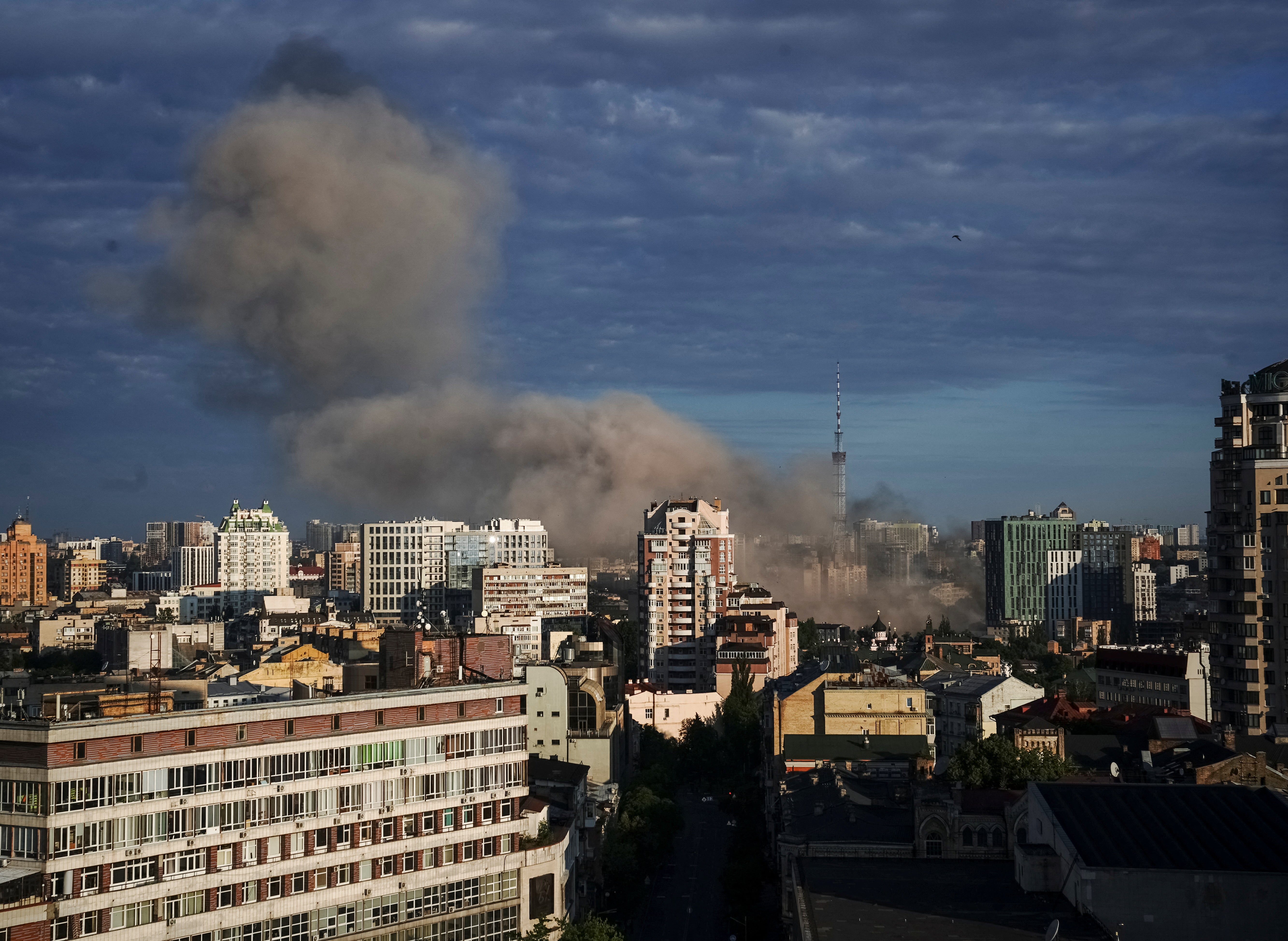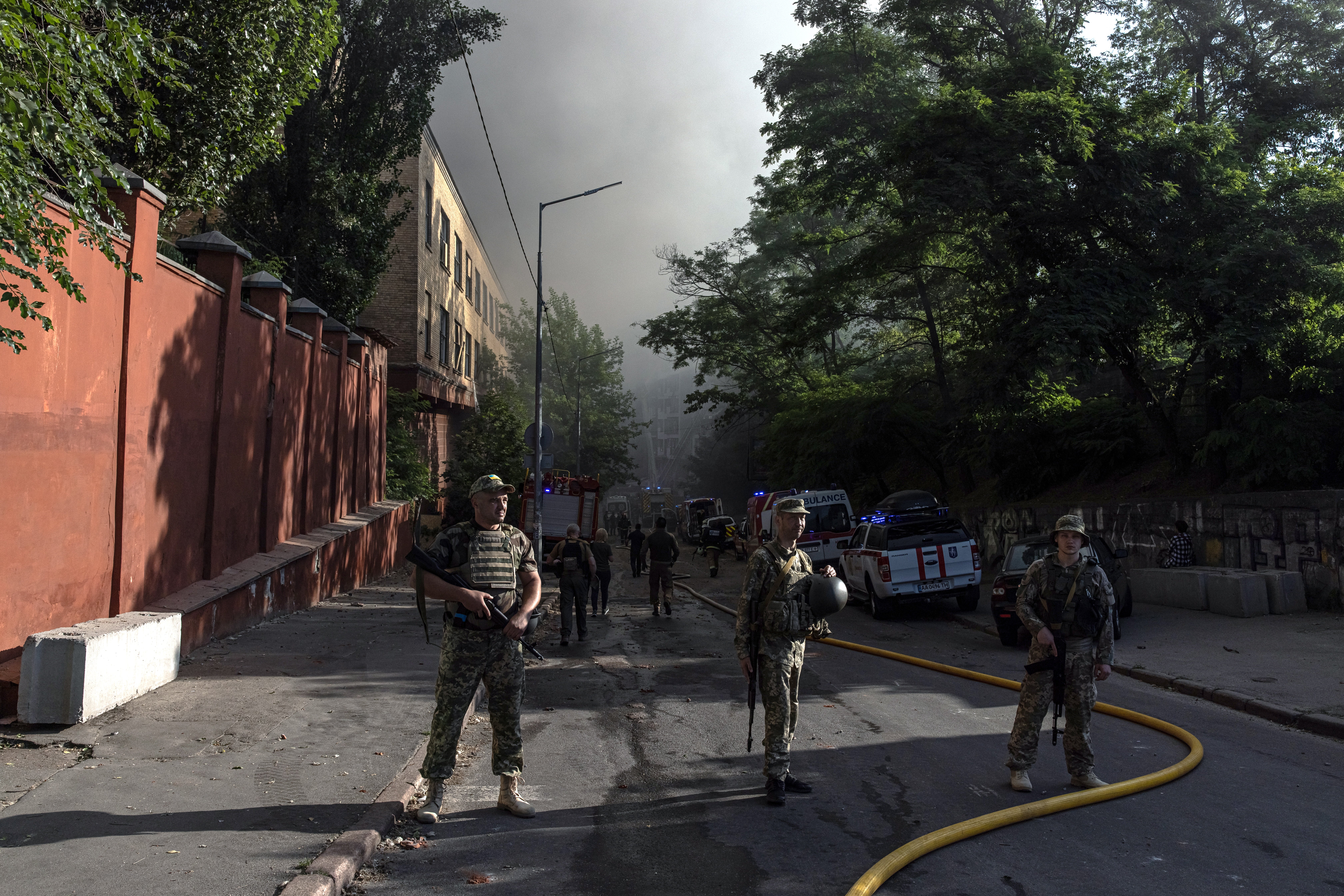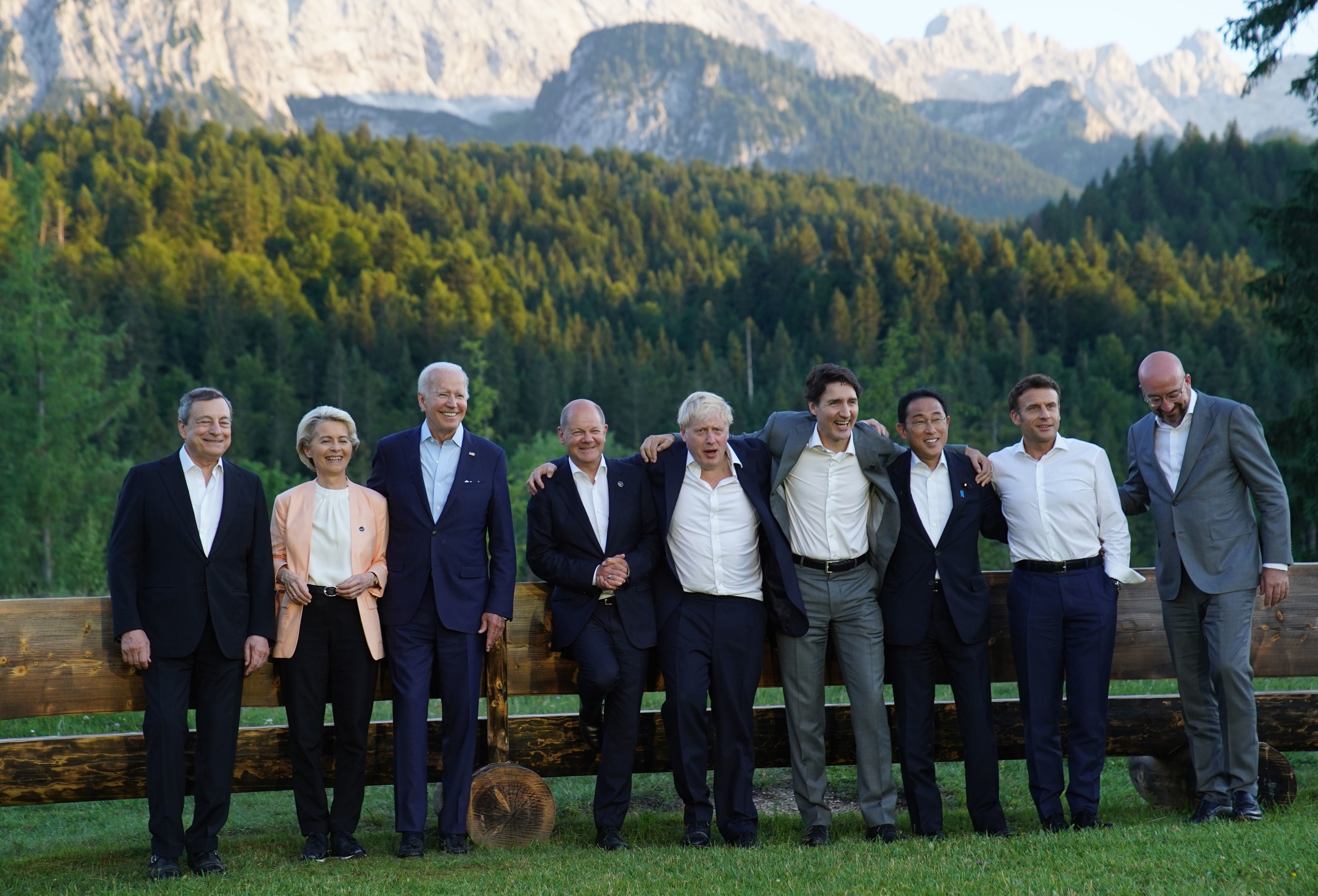Russian missiles hit Kyiv as G7 leaders seek to stay united behind Ukraine
First air strikes on capital in weeks landed hours before allies met in Bavaria
Your support helps us to tell the story
From reproductive rights to climate change to Big Tech, The Independent is on the ground when the story is developing. Whether it's investigating the financials of Elon Musk's pro-Trump PAC or producing our latest documentary, 'The A Word', which shines a light on the American women fighting for reproductive rights, we know how important it is to parse out the facts from the messaging.
At such a critical moment in US history, we need reporters on the ground. Your donation allows us to keep sending journalists to speak to both sides of the story.
The Independent is trusted by Americans across the entire political spectrum. And unlike many other quality news outlets, we choose not to lock Americans out of our reporting and analysis with paywalls. We believe quality journalism should be available to everyone, paid for by those who can afford it.
Your support makes all the difference.Russian missiles were fired at Kyiv early on Sunday, breaking weeks of relative peace in the Ukrainian capital as allied leaders met in Germany.
The strikes hit at least two residential buildings, killing one person and injuring six others, including a 7-year-old girl and her mother, Kyiv mayor Vitali Klitschko said.
Emergency workers were forced to battle flames to rescue civilians from the damaged buildings.
Ukrainian officials said 14 missiles were fired towards the city but most were blocked. Yuriy Ignat, spokesperson for the Ukrainian air force, said the first successful air-attacks on the capital since 5 June were Kh-101 cruise missiles fired from warplanes over the Caspian Sea, around 1,500km (930 miles) away.
Dozens of strikes were fired across Ukraine over the weekend, many in areas that had not been targeted recently. Other targets included the central city of Cherkasy, where officials said one person was killed, and Kharkiv.
Russia’s defence ministry said it hit military targets in Chernihiv in the north and Lviv in the west. Ukraine said some of the latest round of missiles were fired from Russian long-range Tu-22 bombers deployed from Moscow ally Belarus for the first time.
Mr Klitschko said the airstrikes were “maybe a symbolic attack” ahead of a Nato summit in Madrid that starts on Tuesday. Lt Gen Ben Hodges, a former commander of US forces in Europe, said Russia meant to send a signal to the leaders of G7 nations meeting hours later in Germany.
Joe Biden called the attacks “barbarism” as he arrived for the three-day Bavarian summit.
The alliance of leaders supporting Ukraine had been under strain as soaring inflation and warnings of energy shortages wreak havoc in their own countries.

Mr Biden and Boris Johnson both urged unity and continuing support for Ukraine among the wealthy nations.
“We have to stay together, because [Vladimir] Putin has been counting on, from the beginning, that somehow Nato and the G7 would splinter, but we haven’t and we’re not going to,” Mr Biden said during a meeting with German chancellor Olaf Scholz, who holds the G7’s rotating presidency and is hosting the summit.
As the leaders sat down for their opening session, they took a light-hearted jab at the Russian president, who is famed for photoshoots which show off his physique. Mr Johnson could be heard asking whether he should keep his jacket on, adding: “We all have to show that we’re tougher than Putin.” Canadian prime minister Justin Trudeau chimed in: “A bare-chested horseback ride.”
The leaders were set to announce the latest in a long series of international economic steps to pressure and isolate Russia over its war in Ukraine: new bans on imports of Russian gold.

US secretary of state Anthony Blinken said the move would hit “the second-most lucrative export that Russia has after energy”. Mr Blinken told CNN: “It’s about $19bn (£15.5bn) a year. And most of that is within the G7 countries.”
Also on the agenda at the summit will be the mounting food crisis wrought by a blockade on Ukrainian ports, which is cutting one of the world’s largest grain exporters out of supply chains. Mr Johnson plans to use Monday’s session to call for urgent action to end the blockade.
Ukrainian president Volodymyr Zelensky will address the G7 on Monday via video link from Kyiv and call for more weapons to defend against Russia after his home city’s recovery was stunted by Sunday’s attacks.
Kyiv had been relatively peaceful since Russia troops turned their attention to southern and eastern Ukraine after failing to capture the capital city in the early weeks of the now five-month long war.

Russia has had more success in the east in recent weeks and over the weekend captured a significant city in the Donbas that left it within a whisker of controlling all of the Luhansk region.
Ukrainian troops surrendered the city of Sievierodonestk, leaving Russian troops and their separatist allies free to take the territory and advance on Lysychansk, which stands across a river from its fallen neighbour and is Ukraine’s last stronghold in Luhansk.
Serhiy Haidai, Luhansk governor, said on Sunday that Russia was conducting intense airstrikes on Lysychansk, destroying its television tower and seriously damaging a road bridge.
According to the latest reports, Russian forces controlled about half of Donetsk, the other province of the Donbas.
Join our commenting forum
Join thought-provoking conversations, follow other Independent readers and see their replies
Comments